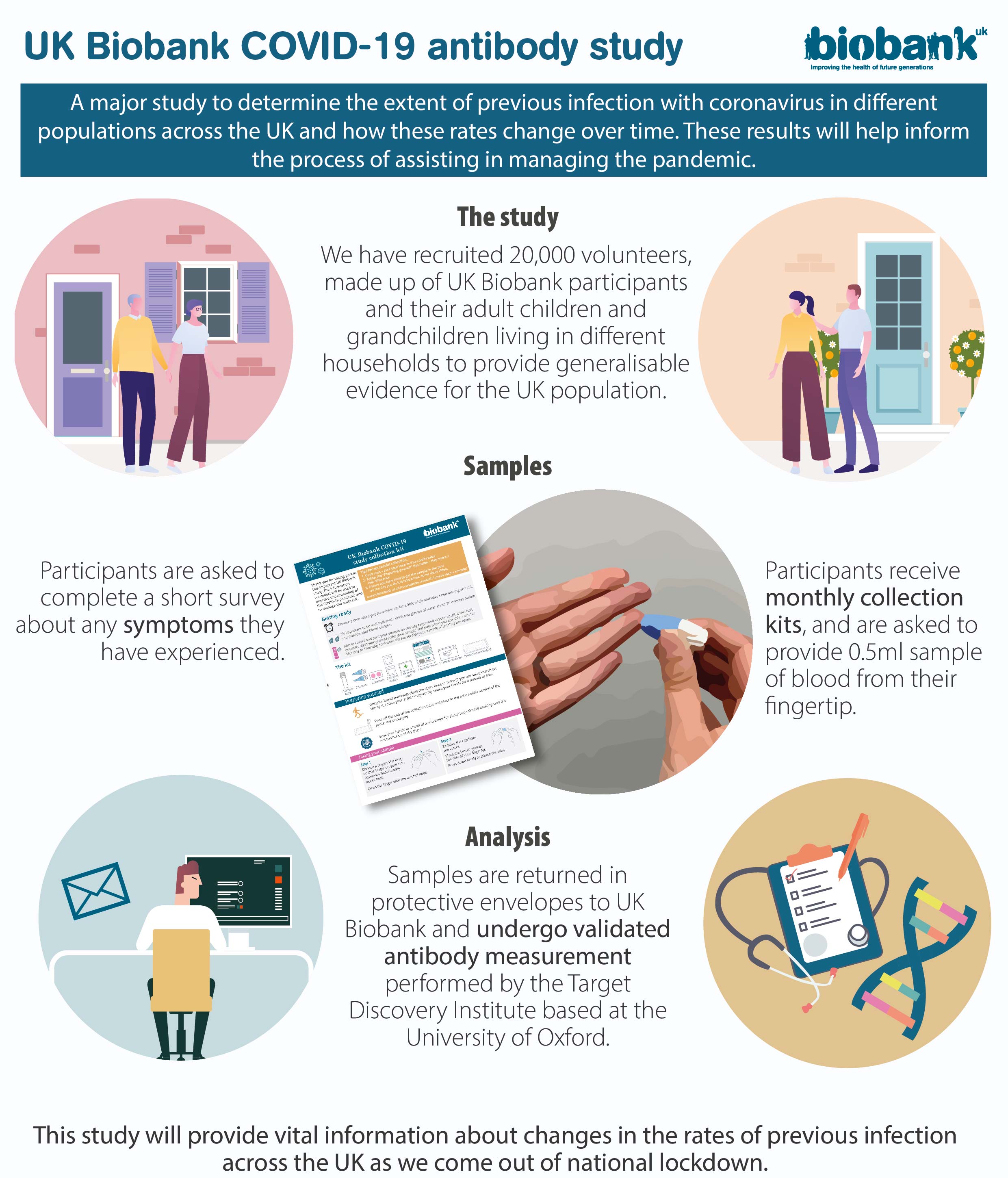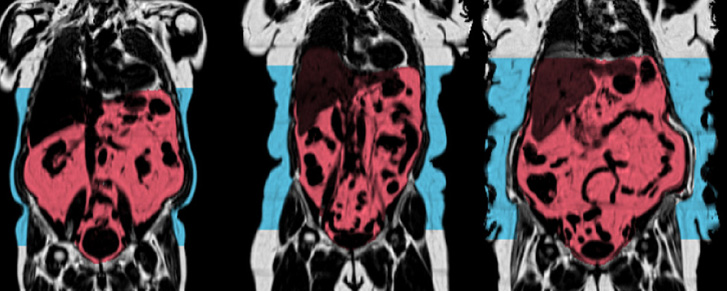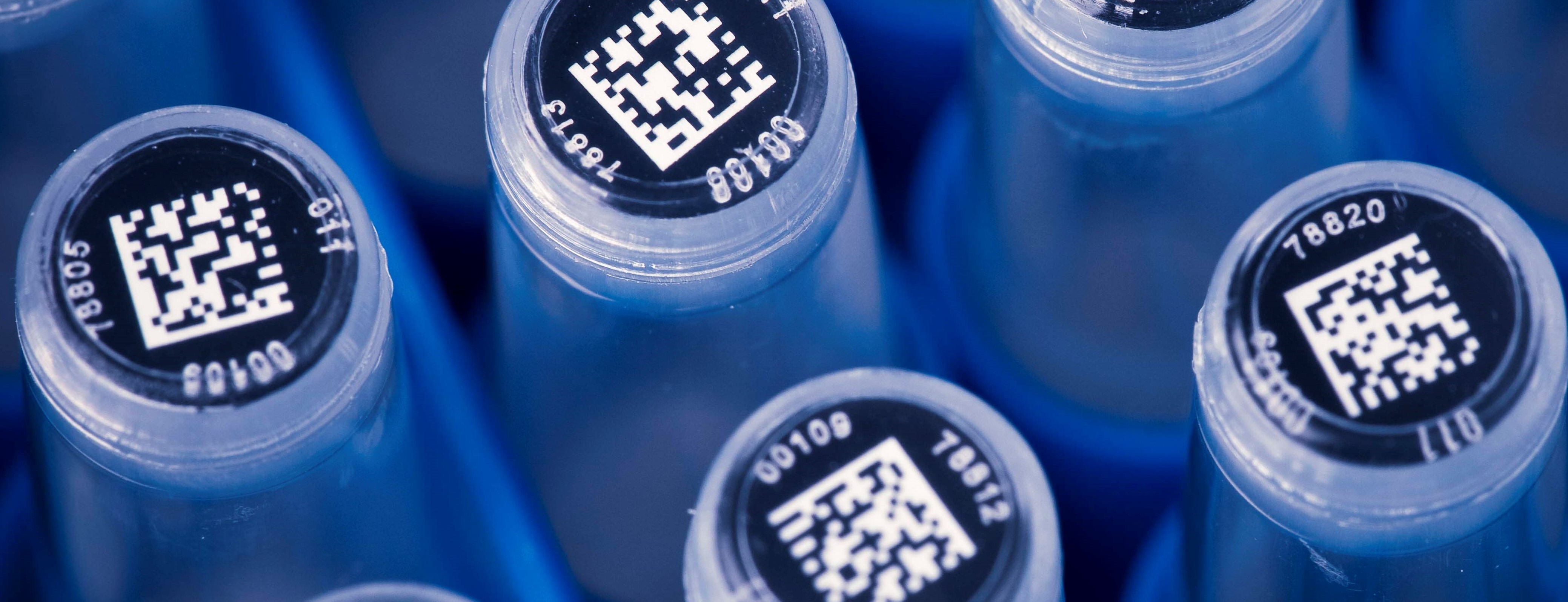COVID-19 data
Understanding the spread of Coronavirus
COVID-19, the infectious disease caused by SARS-CoV-2, was first identified in Wuhan, China in December 2019. It then spread globally, with the first cases identified in the UK at the end of January 2020. In this rapidly evolving pandemic, there has been an urgent need to generate epidemiological insights into the determinants, characteristics and consequences of COVID-19 to guide public health strategy. UK Biobank has helped with this research in a number of ways, including by making data on COVID-19 available to researchers, and by conducting a serology study to understand the determinants of infection and how long antibody levels persist following infection.
Useful links
Facilitating COVID-19 research
To facilitate rapid research into the determinants and consequences of COVID-19, we made the following health record data available on a regular basis during 2020 and 2021:
- Diagnostic COVID-19 test data
- GP (primary care) data for England provided directly by the system suppliers
- Hospital inpatient data for England & Scotland, including critical care date for England
- Death data
The above will continue to made available to researchers, albeit on a less frequent basis (see current censoring dates and future timelines), with the exception of the GP data specifically for COVID-19 research, which has seen its Control of Patient Information (COPI) notice expire. No further primary care data will be received by UK Biobank for the specific purpose of COVID-19 research, and these data can no longer be downloaded by researchers.
These health linkage data, combined with the extensive data already collected on lifestyle and genetic factors on UK Biobank participants will enable research into:
- The extent to which genetic factors are related to disease severity
- How sociodemographic and lifestyle factors, including underlying health conditions, are related to disease severity
- The longer-term morbidity and mortality outcomes for those individuals diagnosed with COVID-19
Serology study of SARS-CoV-2 infection
Thousands of UK Biobank participants have taken part in a major study (funded by the UK Government’s Department of Health and Social Care) to measure the extent of SARS-Cov-2 infection in different regions across the UK:
Study aims:
- The study has assessed the extent of infection in different population subgroups across the UK (e.g. by age, sex, region, socio-economic deprivation, ethnicity and whether they live in an urban or rural area).
- This information enables the assessment of infection over time, which can help with public health policy planning.
- These data enable better understanding on how long antibody levels persist following infection and whether this differs in different age groups. This will help to inform us about waning immunity following infection.
- The proportion of the population that are symptomatic can be shown, and whether this changes by age.
- Because in 2020 and 2021 we linked to medical records for all participants, investigation into the association between antibody levels and disease severity and whether seropositive participants go on to develop a second COVID-19 infection can be measured (and how severe this is).
Methods:
- The study started in May 2020. Participants provided regular blood samples (to measure blood antibody levels) and completed a questionnaire (to assess COVID-19 symptoms).
- 20,000 adults (UK Biobank participants and their children and grandchildren aged over 18) took part in order to increase representation across all ages and regions of the UK.
- Participants taking part received monthly collection kits for about six months, and a further sample collection one year after the first. Using a fingerprick amount of blood (about 0.5ml) using a microsampling device, participant sent samples in the post using pre-paid protective envelopes and these samples were validated under antibody testing performed by the Target Discovery Institute, the University of Oxford.
Related publications
Explore our data
Last updated







